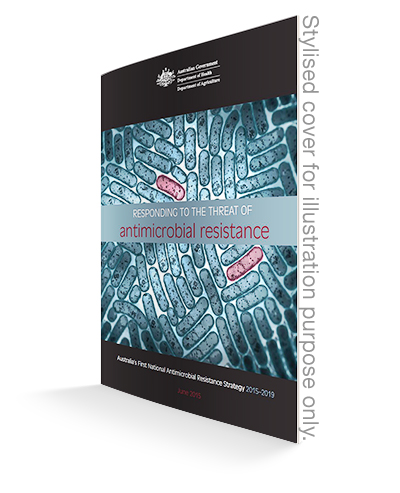Robots help ‘terminate’ antimicrobial resistance in livestock
SCIENCE FICTION is becoming science fact in Australia’s quest to exterminate so-called ‘superbugs’ that can decimate livestock – now robots are being enlisted into the program.
Australian Pork Limited is being funded to the tune of $1.3 million, under the Federal Government’s Rural R&D for Profit program, to boost Australia's trade reputation by demonstrating the low antimicrobial resistance status of this country’s farm produce. They are using the funds to investigate the use of hi-tech laboratory robots to define the low level of antimicrobial resistance risk in pigs and chickens within Australia’s supply chains. 
“Antimicrobial resistance (AMR), or superbugs resistant to antibiotics, is a serious global problem that is a major public health issue worldwide,” Deputy Prime Minister and Minister for Agriculture and Water Resources, Barnaby Joyce said.
“Minimising the development of resistance in livestock and companion animals is an important priority for industry. This research project, led by Australian Pork Limited, will investigate the use of high-tech robots to define the low level of antimicrobial resistance risk in pigs and chickens within our supply chains.”
Laboratory robots can work quickly, precisely and cost-effectively, as part of the industry-wide project to gather information and help farmers demonstrate their low AMR risk status. This is expected to give Australian farmers a competitive advantage internationally.
“Specialised robots will be used to isolate, count and characterise large numbers of bacteria from animal faeces,” Mr Joyce said. “The robots will be used to identify and grow thousands of individual bacteria to determine the presence and distribution of antimicrobial resistance at both the herd and national level.”
Mr Joyce said Australian agriculture was a world leader in the fight against development of superbugs.
“Australia is a global leader in minimising risks of AMR spreading, due to the foresight of the government with industry not permitting the use of several antibiotic classes in livestock,” he said.
Australian Pork Limited CEO, Andrew Spencer said the Australian Government's support for this project, which is significant for both humans and animals, anwould demonstrate livestock industries as responsible citizens.
“The outcome of this project will enable industry to provide hard evidence to back claims and to show leadership credentials, which in an AMR aversive world will be an important point of differentiation,” Mr Spencer said.
He said while there was a limited overlap in antimicrobials between human and animal products it was essential that all parts of the puzzle contribute to the solution.
Mr Joyce said, “The project will help monitor on-farm control measures to reduce the presence of antimicrobial resistant organisms across pork and chicken meat industries, with the potential for the project to be used as a model in other animal sectors and for ongoing surveillance.”
He said the $180.5 million R&D for Profit program was part of the election commitment to increase R&D funding for practical projects, “to increase farmgate returns and capture global market opportunities”.
Ends

 How to resolve AdBlock issue?
How to resolve AdBlock issue?